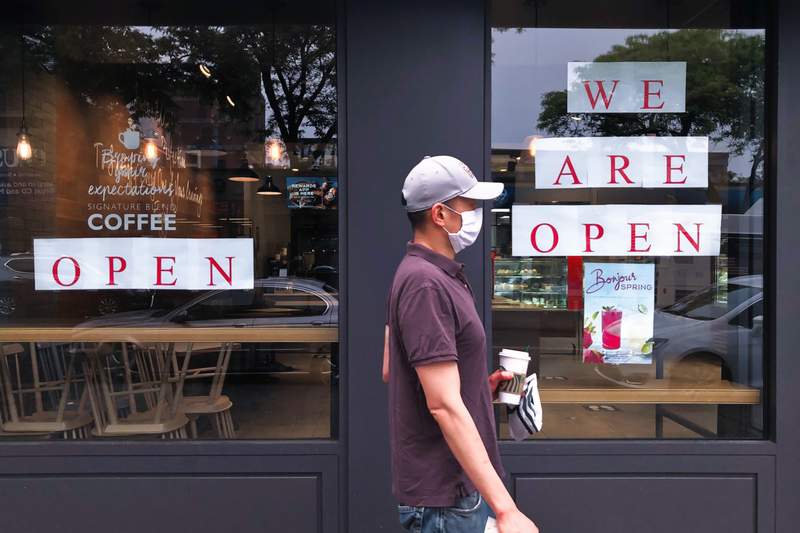By Howard Schneider
WASHINGTON (Reuters) - How fast can you rebound from zero?
In the massive job reshuffling under way in the United States right now, the speed with which corner restaurants, the local barber or the yoga studio up the street can climb back to normal from a dead stop in March and April will be one key to whether the coronavirus leaves a lasting gash in the economy.
Those industries may seem trivial in an advanced country where attention focuses on the latest high-flash technology helping people work from home.
They aren't. In the decade-long economic expansion that ended in February, restaurants, hotels, and personal service firms played an important role.
Some industries grew more.
But the proliferation of small restaurants and similar businesses over the last decade generated a growing share of U.S. jobs, accounting for 11% of all jobs as of February. It was growth, moreover, across occupations more open to the less-skilled, helping push the U.S. unemployment rate to the record lows it hit last year and extend the gains of that expansion more broadly across the population.
For those firms, the wound from the coronavirus has been the deepest by far. From February to April, the leisure and hospitality industry lost about half of its 16.8 million jobs, the largest decline in any of the 14 industrial categories used by the Bureau of Labor Statistics to describe the U.S. economy.
In a viral pandemic, the very qualities that make a neighborhood cafe cozy become a confidence breaker, so a full recovery may be slow.
Of the roughly 8 million jobs lost in the industry, 4 million were recovered as the economy reopened and firms found news ways, such as outdoor seating, to rekindle business.
But that still leaves 4 million jobs "missing," and the easy part may be over. What's worrying U.S. officials now is whether those still-lost jobs will come back at all, or whether some industries have been permanently downsized.
Many of the jobs at risk were in small businesses more prone to failure for each month the crisis extends, and particularly if a new viral wave deepens the downturn.
Many were filled by minorities, women, or less skilled workers who following past recessions have had a tougher time regaining a foothold in the economy.
At the start of this downturn, economists were hopeful that its unique origins - a public health crisis that required the economy to hibernate - could be quickly reversed. They now talk about the risk of an extended "reallocation shock" as workers fight to retrain, switch industries and regain their place.
Economists watch different groups of people for evidence of how deep and permanent the scars might become. Among the most telling are the number of people unemployed for six months or more, and the number who have pared down their job search, out of discouragement for example.
In the opening months of this downturn, those two groups have grown 50%, to 3.6 million as of August - triple the rate of increase seen in the 2007 to 2009 recession.
